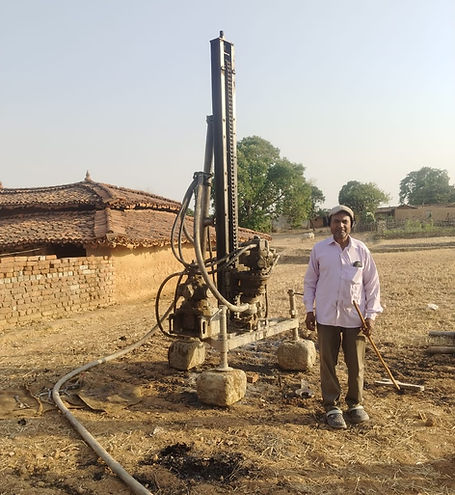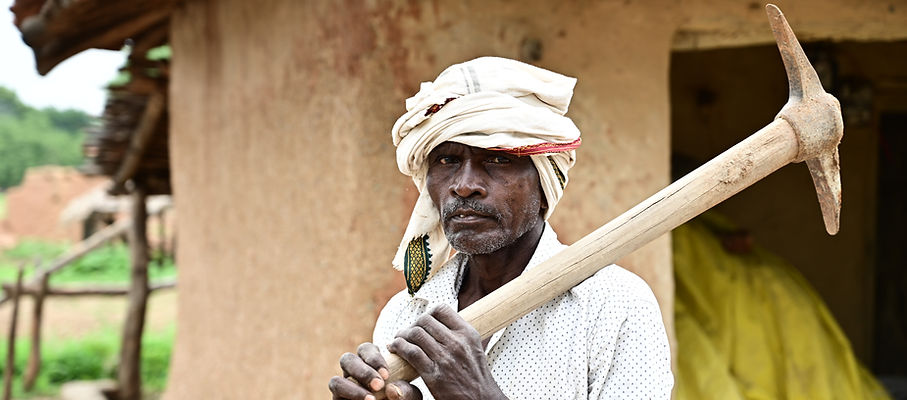
The Impact
Regenerate India is designed not merely as a farming collective but as a comprehensive vehicle for economic development, social transformation, and environmental sustainability. Rooted in the guidelines laid out by the Ministry of Agriculture (GoI) and supported under schemes like RKVY and SFAC’s FPO promotion strategy, the project brings measurable value across three critical domains: economic upliftment, social equity, and ecological restoration.
1. Economic Impact
-Farmer Income Growth
The central goal of the FPO model is to increase the income of small and marginal farmers by addressing systemic inefficiencies across the agricultural value chain. This is achieved through:
-
Collective input procurement, reducing per-unit input costs by 15–25% through economies of scale
-
Direct crop aggregation and market linkage, improving price realisation by 20–30% compared to local traders
-
Value addition via cleaning, grading, packaging, and branded retail for crops such as moringa, millets, and pulses
-
Livelihood diversification through goat rearing, food forest produce, and compost sales
Projected Impact: By Year 3, farmers in Kuldomari are expected to see a 2x–3x increase in net annual income, driven by improved margins, lower costs, and new revenue sources.
-Rural Employment Generation
Beyond its member base, the FPO model stimulates the rural economy by generating employment across service and operational verticals. These include:
-
Input handling and distribution
-
Produce transportation, packaging, and storage
-
Maintenance of regenerative agriculture plots and food forests
-
Veterinary and livestock management services
-
Composting, nursery operations, and CBG plant management
Estimated Impact: This project is forecasted to create over 400 direct and indirect jobs within three years, with a significant share designated for tribal youth and women.


2. Social Impact
-Women’s Involvement and Empowerment
With 73% of enrolled members being women, the FPO actively promotes gender equity through targeted livelihood programs. Women are engaged in:
-
Managing goat rearing units and livestock care
-
Leading nursery development and compost preparation
-
Participating in FIG (Farmer Interest Group) leadership and decision-making
-
Accessing financial literacy and entrepreneurial training
The model recognizes women not only as beneficiaries but as active producers and decision-makers, encouraging community-level gender inclusion.


-Youth Engagement and Retention
Rural migration—especially among the youth—is a major challenge in underdeveloped regions like Kuldomari. The FPO addresses this by:
Creating skilled roles in agriculture, CBG operation, packaging, and processing
Providing training in modern agricultural practices, organic farming, and digital tools
Offering income-generating opportunities within the value chain, including retail, logistics, and extension work


-Strengthening Community Institutions
The FPO structure builds grassroots institutions founded on democratic control, economic participation, and collective action. Unlike politicised cooperative models of the past, our FPO ensures:
-
Transparent, participatory governance (1 member = 1 vote)
-
Elected Board of Directors accountable to the General Body
-
Member-driven surplus allocation
-
Shared ownership of infrastructure and common assets
Outcome: The formation of strong, self-reliant local institutions capable of independently negotiating with markets, financial institutions, and the government.


3. Environmental Sustainability
-Soil Regeneration & Organic Farming
The project is grounded in regenerative agricultural practices, aligning with global climate goals and national mandates on sustainable land use. Core interventions include:
-
No-till farming, cover cropping, and multi-crop food forests
-
Use of bio-compost and bio-slurry from CBG plants
-
Avoidance of chemical inputs, promoting natural nutrient cycles
Impact: Measured increases in topsoil organic carbon and overall soil health, contributing to improved yields and long-term fertility.


-Water Use Efficiency
With low access to formal irrigation and high rainfall variability, the FPO promotes:
-
Low-water-demand crops like moringa, millets, and pulses
-
Collective borewell services to reduce duplication and over-extraction
-
Agroforestry practices to enhance groundwater recharge and prevent runoff
Expected Result: 30–40% improvement in water use efficiency, especially in fields currently reliant on seasonal rainfall.


-Carbon Sequestration and Clean Energy
Through food forestry and bioenergy, the FPO model contributes directly to India's carbon neutrality goals. Key elements include:
Moringa and vetiver-based agroforestry, with carbon sequestration rates of 100–130 tons per hectare annually
Compressed Bio Gas (CBG) units convert organic waste into clean fuel, reducing emissions from stubble burning
Carbon offset potential for future integration with voluntary carbon markets or CSR climate mandates

Environmental Benefit
Over 100 tons of CO₂-equivalent mitigated per hectare per year, supporting India's NDC targets under the Paris Agreement.
This integrated impact framework reflects the FPO’s commitment to a triple-bottom-line approach, encompassing economic prosperity, social inclusion, and environmental restoration. It is a replicable, policy-aligned model that can reshape the rural development narrative in India.
Social Challenges & Our Response
Rural communities continue to face declining livelihoods, widespread farmer distress, and deep-rooted food insecurity. Limited access to agricultural innovation further compounds these challenges. In response, our initiative focuses on empowering farmers through climate-resilient farming practices, improving food and nutrition security, and enabling sustainable rural development that restores dignity and opportunity to agrarian life.
Economic Challenges & Our Response
High input costs, fragmented supply chains, and a lack of innovation have led to stagnant rural economies and underutilization of emerging markets, such as carbon credits. Our model addresses these issues by promoting multi-sector monetisation, ranging from agroforestry to bioenergy, and creating new revenue streams through carbon credit generation and access to global markets for value-added products. This approach revitalises the rural economy while keeping ownership in the hands of farmers.
Environmental Challenges & Our Response
Environmental degradation, in the form of soil erosion, water scarcity, and rising carbon emissions, continues to threaten the long-term viability of agriculture. Our solution lies in restoring degraded land, promoting biodiversity through food forests, and integrating low-input, high-impact farming systems. These efforts not only rebuild ecological balance but also facilitate natural carbon sequestration, contributing to climate mitigation goals.
In conclusion, the Kuldomari FPO represents a powerful convergence of traditional knowledge, modern sustainability practices, and inclusive governance. By addressing deep-rooted challenges in rural livelihoods, ecological health, and agricultural productivity, the initiative lays the foundation for a resilient, self-reliant, and prosperous farming community. Its triple-bottom-line framework—balancing economic growth, social equity, and environmental restoration—offers a replicable and scalable model for future-ready rural development aligned with India’s national priorities and global sustainability commitments.

